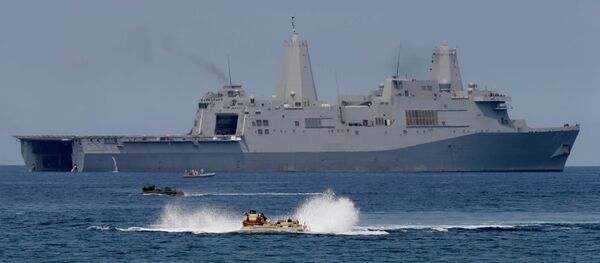According to US journalist Harry J. Kazianis, it is China, who is the real troublemaker in the region, not the US, and other countries in the region “want more America, not less.”
“Washington is the only thing that ensures China’s rise is not Asia’s nightmare or that we don’t become another Hong Kong,” the author quotes one senior Taiwanese official as claiming, without revealing his name.
“Each time in the last three years I went to Asia, every senior official I spoke with wanted more American leadership, more American commitment and even more American resolve to face down the challenge of a ‘rising’ China who is constantly threatening to overturn the status quo—time and time again,” Kazianis writes in his article.
His view is persuasively opposed by John Glaser, who says that “citing government officials in East Asia who argue for “more America, not less” is hardly an argument in favor of continuing our current strategy.”
“Moreover, it’s difficult to put too much stock in their hysteria about China’s nefarious rise when it’s supposedly vulnerable and terrified neighbors are reluctant to spend more than 1-2 percent of their GDP on defense.”
The author also quotes other experts who say that “the notion that unequivocal US predominance in the Western Pacific constitutes the only basis for long-term stability and prosperity across the Asia-Pacific is a dangerous, increasingly obsolete concept” that is “deeply rooted in both American exceptionalism and beliefs about the benefits of hegemonic power in the international order” that do not stand up to scrutiny.”
“For the present strategy against China to be effective —or, for that matter, coherent—there must be an explanation of how we expect containment to work,” Glaser opposes.
“In what scenario can we imagine China, whose relative power in the international system is rising, to give up its regional ambitions, overcome its fears of encirclement, and cede regional hegemony to the United States, whose relative power is declining?”
He then quotes Professor of Political Science, John Mearsheimer as questioning in one of his articles “why would a powerful China accept US military forces operating in its backyard?”
The answer so far has not been provided.





